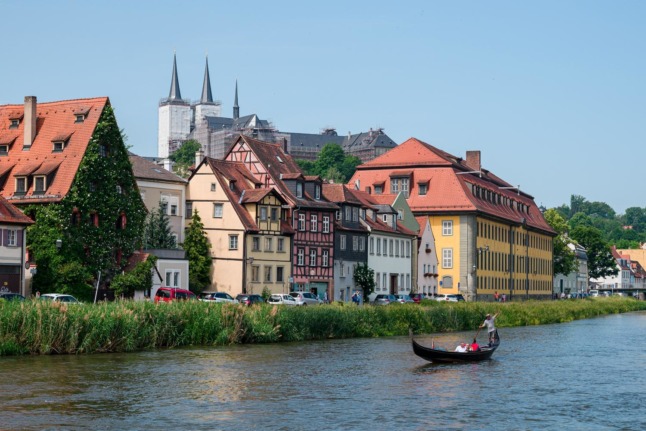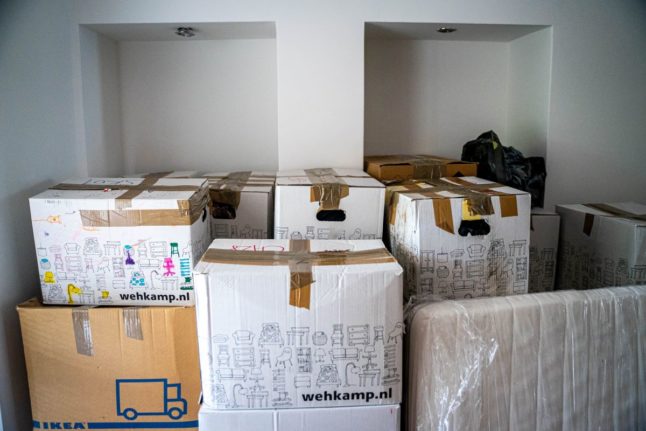Deciding to move to a different country is never an easy process. Whether you’re single or have a family, leaving the relative comfort of home to try life in a completely different culture is a massive challenge but not one without numerous benefits.
Having lived in Germany for a decade, I’m often asked for advice on how to navigate moves, how to find a job or simply what to expect on arriving here. Something I often tell people is to choose their location carefully. Often it’s not as simple as just choosing where to live – employment obviously plays a massive part in any decision making process.
That being said, many people seeking jobs in Germany will look to the large cities of the north and forget what opportunities may be found further afield. As an adopted Bavarian, I can only recommend my own state for inclusion in any possible search for a new home.
Much more than Munich
In total Bavaria has 13.1 million residents and around 1.96 million are non-Germans.
As state capital and largest population centre in the state (with 1.4 million residents), Munich often eclipses all other choices for those seeking a new life in Germany. However, as culturally significant as Munich is, it is easily one of the most expensive cities to live in. The jobs might be in Munich, but that doesn’t mean you have to live there.

With high speed rail links connecting the major cities in the state, it’s perfectly possible to commute and live in one of the many other beautiful cities of Bavaria. If living life by the train schedule doesn’t float your boat, then it must not be forgotten that major companies are distributed throughout the state, as well as many smaller companies that are based out of small towns and villages. Don’t assume that Munich is the only option.
READ ALSO: Why Munich is the only city I’ve ever really felt at home
Traditional – but not stuck in the past
Bavaria is often seen from outside as the epitome of a particular brand of German conservative traditionalism. While you are certainly more likely to come across someone wearing Trachten (traditional clothing) on a Tuesday morning than other parts of Germany, this can be overblown.
Many cities still enforce silent days (no music or singing) on religious holidays and some cities still have regulations against making too much noise on Sundays. In reality most of the time it simply depends on your neighbours. Make an effort to introduce yourself and you’ll find that giving the house a quick hoover on a Sunday afternoon won’t lead to a knock at the door from the Ordnungsamt.
READ ALSO: Ruhezeit – what you need to know about ‘quiet time’ in Germany
Opportunity to learn German (with different dialects)
This one might seem kind of obvious, but you would be surprised how many people I know who’ve managed to live here for a very long time without ever really bothering to learn the language. It’s very possible, although it’s not recommended.
For one thing, any interaction with local or national government will be in German. Another point is that given the wide variety of dialects still active in Bavaria, getting a grasp on the language will open doors to a whole world of interesting language. Not learning any German essentially dooms a person to a half existence here, take the plunge and the rewards will be plentiful.
READ ALSO: 15 Bavarian words you need to survive down south

A good helping of public holidays
Bavaria has significantly more public holidays than any other state in Germany thanks to the many Catholic holidays still observed in the state. Nominally there are 12 public holidays, but that very much depends if they fall on a weekend or not. Then again, if you happen to live in certain areas, this can increase to as many as 13 (due to local holidays). Some cities or areas of cities have their own public holidays or half days too.
Contrast this with Berlin which only has 10 public holidays throughout the year. Three extra days might not seem like much, but once you realise that Bavarians are living it up while you’re trudging to the U-Bahn in the capital, you might start to see the benefit. The placement of these extra days is vital too. Bavarians recovering from New Year know that January 6th (Epiphany) is free and so often offices won’t reopen until after the 6th, giving some workers an extra couple of days free. Equally, All Saints Day (November 1st) also secures you another day off. Choose wisely, it may well pay off in the longterm.
READ ALSO: How you can make the most of Germany’s public holidays
Large state with lots to see
Bavaria is the largest state in Germany and it shows. Travelling around there are thousands of areas of natural beauty, from rolling hills, to castles, to mountains. The size also means there’s always something to visit, whether that’s one of the many chocolate box villages or large cities. City tours can be mixed with mountain hikes or for the less actively inclined, there are numerous spa towns.
Sure, most of my weekends are currently filled with wrangling a small child, but these wonderful locations are still out there, waiting.

Come for the view, stay for the beer festivals
If the public holidays, beautiful scenery or love of language didn’t seal the deal, there’s one more thing that Bavaria can offer. Sure, everyone has heard of Oktoberfest, but what many people don’t know is that most villages, towns and cities in the state celebrate their own beer fuelled local festivals.
One of the best parts about travelling the state of a weekend is the chance you might fortuitously discover one such festival in full swing. Although the purpose of the celebration may be unclear, the beer and sausages will answer most questions.
Are you a Bavarian resident or are you considering a move there? Do you agree with this article or have more to add? Let us know by emailing [email protected] or leaving a comment.



 Please whitelist us to continue reading.
Please whitelist us to continue reading.
Nic, thanks for the encouragement. My husband and I will be retiring next year and plan on moving to Bavaria. Our first months will be spent in language school as you advise. Currently we’re zeroing in on Landshut. But who knows! Again, thanks for article and thanks to The Local.
We found Landshut as it it is twinned with Elgin. We retired here and it is a lovely place to live. Old town lively, many restaurants and of course there is the LAHO – the reenactment of a wedding from the Middle Ages. Can recommend it.